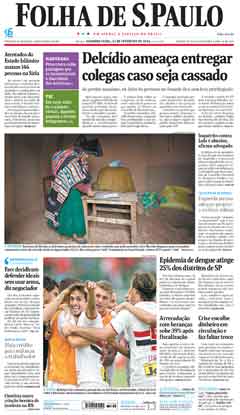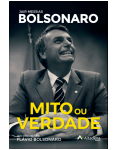Publicidade
Publicidade
Amorim faz visita com novo embaixador americano; leia em inglês
Publicidade
DE SÃO PAULO
ID 243089
Date: 1/11/2010 11:57
1/11/2010 11:57
10BRASILIA7
Embassy Brasilia
UNCLASSIFIED//FOR OFFICIAL USE ONLY
Para EUA, Brasil ficou 'perdido' depois de golpe em Honduras
Veja como funciona o WikiLeaks
Veja as principais revelações do WikiLeaks
Leia a cobertura completa sobre WikiLeaks
Leia íntegra dos arquivos do WikiLeaks obtidos pela Folha
VZCZCXYZ0000RR RUEHWEBDE RUEHBR #0007/01 0111158ZNY CCCCC ZZHR 111157Z JAN 10FM AMEMBASSY BRASILIATO RUEHC/SECSTATE WASHDC 0282INFO RUEHAC/AMEMBASSY ASUNCIONRUEHBO/AMEMBASSY BOGOTARUEHBR/AMEMBASSY BRASILIARUEHBU/AMEMBASSY BUENOS AIRESRUEHCV/AMEMBASSY CARACASRUEHGE/AMEMBASSY GEORGETOWNRUEHLP/AMEMBASSY LA PAZRUEHMN/AMEMBASSY MONTEVIDEORUEHPE/AMEMBASSY LIMARUEHPO/AMEMBASSY PARAMARIBORUEHPU/AMEMBASSY PORT AU PRINCERUEHQT/AMEMBASSY QUITORUEHRY/AMEMBASSY CONAKRY 0001RUEHSG/AMEMBASSY SANTIAGORUEHTG/AMEMBASSY TEGUCIGALPA 0001
C O N F I D E N T I A L BRASILIA 000007 SIPDIS STATE FOR S, D, P, E, WHA, WHA/BSC NSC FOR RESTREPO E.O. 12958: DECL: 2020/01/11 TAGS: PREL, BR SUBJECT: BRAZIL: FOREIGN MINISTRY EAGER TO LAUNCH NEXT PHASE OF US-BRAZIL RELATIONSHIP CLASSIFIED BY: Thomas A. Shannon, Ambassador, State, Embassy Brasilia; REASON: 1.4, (D)
1. (C) Summary: Foreign Minister Celso Amorim broke with normal protocol and practice and met with Ambassador Shannon January 8, only hours after the Ambassador had arrived in country. Amorim welcomed the Ambassador's arrival, lamented the drawn out confirmation process, and said he was eager to begin at once on the next stage in US-Brazil relations. He agreed that the opportunities for a deeper engagement were many and stressed the importance of "intense dialogue." Globally, Amorim raised economic cooperation, climate change, Iran and the Middle East. Regionally, he spoke of Honduras and the aftermath of the US-Colombia Defense Cooperation Agreement (DCA). He expressed hope that Secretary Clinton could visit soon and said he looked forward to Under Secretary Burns' upcoming trip. Lower level Foreign Ministry officials echoed his thoughts, adding UN Security Council priorities and peacekeeping to the list of front-burner issues to discuss. End Summary.
--------------------------------------------- --------------------
AMORIM GETS DOWN TO BUSINESS AT ONCE
--------------------------------------------- --------------------
2. (C) Foreign Minister Celso Amorim broke with normal protocol and practice to meet with incoming Ambassador Thomas Shannon January 8. The Ambassador had earlier presented copies of his credentials to the Foreign Ministry. He will present his credentials officially to President Lula on February 4.
3. (C) Amorim welcomed the Ambassador's arrival, calling it an important and necessary step in deepening the bilateral relationship and Brazil's dialogue with the Obama Administration. He noted with frustration the several month delay in the confirmation process, asserting that both countries had "lost precious time." He affirmed his commitment to working to build a more extensive and more strategic dialogue that would capture the increasingly global nature of our relationship. He expressed hope that Secretary Clinton could visit soon, and welcomed the upcoming visit of Under Secretary Burns.
4. (C) Amorim said areas of convergence in our relationship far outweighed the differences. He noted that the differences were "manageable," but said they would be exploited by the press and the political opposition to create the impression of a more serious divide. He urged the Ambassador to help fashion an "intense and robust" process of consultation that would promote transparency and understanding as both countries addressed pressing global concerns.
5. (C) The Ambassador welcomed Amorim's call for deeper dialogue. He noted the overarching importance of transnational issues and indicated that the future of the US-Brazil relationship was "global." The Ambassador highlighted the extensive nature of our existing structure of dialogues, and asserted his and the Embassy's commitment to working with all interested agencies to support their success. At the same time, the Ambassador recognized the need for a deeper and more strategic dialogue between the US and Brazil. He said that such a dialogue, especially in anticipation of Brazil's upcoming presidential elections could serve two useful purposes: first, to manage differences and protect our relationship during a time of intense political activity in Brazil, and second, to act as a source of continuity and ensure the longevity and success of existing initiatives.
6. (C) Amorim then shared his views on global and regional issues. Regarding economic cooperation, he said it was important to broaden the umbrella of bilateral issues, moving past the Free Trade Agreements (FTAs) model and instead focusing on concrete measures to promote increased economic cooperation and technology exchange. He said the GOB was pleased that a good compromise was reached on climate change in Copenhagen, praising the role of the President and Secretary. He lamented that the press had misrepresented the agreement, calling the compromiQ "the best possible outcome; it kept the talks alive."
7. (C) Amorim offered that a visit by the Secretary would be a good opportunity to discuss Iran and the Middle East. Brazil can contribute and be a positive voice on issues in the Middle East and with Iran, he said. Amorim had spoken with Iranian President Ahmadinejad during the trip to Brazil in November and had raised human rights and the need to abide by international agreements. He had also urged the Iranians to delay work on new processing installations in order to open a space for negotiations. The government in Iran "is repressive but not totalitarian and they want to negotiate." Amorim urged caution in dealing with Iran, saying that trying to "hurry up" Iran would produce a domestic backlash and stiffen its resolve.
8. (C) Speaking of regional issues, Amorim downplayed the U.S.-Colombia DCA and the political crisis in Honduras as bilateral problems, but said they still rankled in South America. Amorim said that the U.S. use of military bases in Colombia will cause the region some discomfort. He wished there had been greater consultations with the region on the DCA and commented that countries in the region would watch very closely how the bases are used, and make further evaluations based on what they see. He commented that more intensive dialogue must be undertaken on the issue because it is a political, not technical, one. On Honduras, Amorim said Brazil was not yet ready to consider the recent elections legitimate; however, Brazil is done harping on this point and recognizes the elections as a fact it must accommodate. He said Brazil's priority is now securing an honorable exit for Zelaya.
--------------------------------------------- ---------------------- --------------------------------------------- -
OTHER FOREIGN MINISTRY OFFICIALS ALSO WELCOME THE OPPORTUNITY TO DEEPEN RELATIONS
--------------------------------------------- ---------------------- ---------------------------------------------
9. (C) Prior to the Amorim meeting, the Ambassador presented to Itamaraty's head of Protocol Division Minister Counselor Jose Amir da Costa Dornelles the papers needed to confirm his meeting with President Lula on February 4 to formally present his credentials. He also met with Minister Carlos Sergio Duarte, Director for International Organizations, who was filling in for the vacationing Under Secretary for Political Affairs Vera Machado.
10. (C) The Ambassador and Duarte agreed that this is an important time for Brazil and the United States because there are many new opportunities to discuss and move forward on the bilateral and multilateral realm. Duarte emphasized that this is a time for creative thinking especially in the international arena and that even though the United States and Brazil do not always share the same position, the nature of the bilateral discourse is always mature and beneficial. 11. (C) Duarte went through Brazil's priorities in the UN Security Council, first listing Haiti, which he noted appeared to be an issue of great interest to the United States as well. Brazil has been in Haiti for five or six years and is interested in gradually reconfiguring the mission to Haiti's changing needs. The mission in Haiti has done well but now there is a need for investments to capitalize on the country's human capital. Brazil is working to mobilize business interests to invest in Haiti. Duarte continued to explain that while Haiti is the main regional concern, Brazil is also looking to work on Guinea Bissau. On larger issues to address in the Security Council, Duarte noted Brazil wants to discuss the nature of peacekeeping operations in conflict zones, such as Congo. The Ambassador noted that the United States had done an extensive review of our Haiti policy, and that we were ready for a larger discussion with partners like Brazil on Haiti.
---------------- COMMENT ----------------
12. (C) This wasn't the usual welcome given to a new ambassador. It is clear that the Foreign Ministry is eager to launch the next phase of US-Brazilian relations. From a Brazilian perspective, dialogue across not just regional, but global issues, will be important, and the Foreign Ministry looks forward to doing this both with the US Ambassador and his team, and, hopefully, with Under Secretary Burns and the Secretary.
13. (U) The Ambassador approved this cable. MINIMIZE CONSIDERED KUBISKE
+ Canais
+ Notícias em Poder
- Em sua despedida do Senado, Marina Silva se emociona ao falar sobre saída do PT
- Após um ano e dois meses parado, processo da Satiagraha volta andar
- Supremo decide que titular de cartório não concursado deve sair do cargo
- Justiça Eleitoral de SP desaprova contas de Marta Suplicy
- Michel Temer formaliza renúncia da Presidência da Câmara
- Dilma cancela ida a jantar com presidentes do Mercosul
- Roriz é condenado pagar danos morais a cabo eleitoral que ficou cego
- PF leva presidente e vice do Tribunal de Justiça do Tocantins para depor
+ Livraria
- Box de DVD reúne dupla de clássicos de Andrei Tarkóvski
- Como atingir alta performance por meio da autorresponsabilidade
- 'Fluxos em Cadeia' analisa funcionamento e cotidiano do sistema penitenciário
- Livro analisa comunicações políticas entre Portugal, Brasil e Angola
- Livro traz mais de cem receitas de saladas que promovem saciedade
Publicidade
As Últimas que Você não Leu
Publicidade
+ LidasÍndice
- Nomeação de novo juiz do Supremo pode ter impacto sobre a Lava Jato
- Indicação de Alexandre de Moraes vai aprofundar racha dentro do PSDB
- Base no Senado exalta currículo de Moraes e elogia indicação
- Na USP, Moraes perdeu concursos e foi acusado de defender tortura
- Escolha de Moraes só possui semelhança com a de Nelson Jobim em 1997
+ Comentadas
- Manifestantes tentam impedir fala de Moro em palestra em Nova York
- Temer decide indicar Alexandre de Moraes para vaga de Teori no STF
+ EnviadasÍndice








